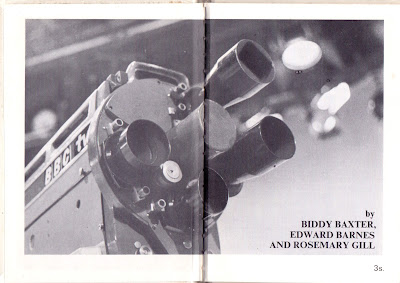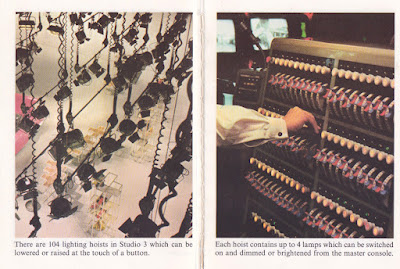An advert in Sounds, April 1983
"Outside London, 24 hours a day, except during the season's major cricket matches, when it's available at the end of play"
Even without the summertime disruption caused by cricket, this doesn't seem the most compelling of offers to the pop-loving public: "all your favorite singles" but that translates to "four different songs" during the week, going up to five at the weekend.
How much did they charge per minute?
Easy to picture parents up and down the land with steam coming out of their ears when they opened the phone bill.
I could find very little information about Discline online.
But in the 1960s a service called Dial-A-Disc was offered by what was then known as the GPO - General Post Office .
Same issue with the cricket competing for limited phoneline bandwidth!
Excerpts from a Retroscoop post about Dial-A-Disc:
"Dial-a-Disc was trialed first in Leeds, springing to life at 6 pm on the 7th July 1966. It ran for just under a month, before being hailed as an outstanding success! The service was started again on the 8th December 1966, again only in the Leeds area, but it was rolled out to the rest of the country gradually over a four year period. On-demand music streaming had arrived. But Hi-Fidelity it wasn’t.
"Transmitted in Mono, with the bandwidth heavily squeezed, the music was accompanied by the obligatory background crackle and static hiss generated by sending the audio down miles of copper cable. But despite its shortcomings in musical quality, it was a truly magical experience – and one that had an indefinable charm about it....
"The service ran during the ‘cheap rate’ hours from 6 pm in the evening to 6 am the following morning every weekday, and all day on Sundays. Initially only the top 7 records in the charts were played on the service, with a new record being played every day. This was soon increased to the top 8, with two records being played on Sundays. Eventually, the service expanded in its latter years to include the whole of the top 20....
"People who used Dial-a-Disc have fond memories of the quirkiness of the service. Some individuals recall that on some occasions they could sometimes hear other people talking on the line during the gaps between the end and start of the records. This appears to have been more of a problem when listening to Dial-a-Disc via public phone boxes. In some inner-city booths, youths would dial into the service specifically to chat to other local users during the quiet spots. One woman from Birmingham claimed to have met her future husband in this way!"
Like fiddling the lecky or your gas meter, crafty kids found a bunch of different ways of getting to hear the pop tunes for free.
However this one doesn't sound very satisfying:
"Listening to the record in installments. The GPO allowed users to listen to the first 10 seconds of the recording for free before you had to insert money into the coin box. Users would ring the service multiple times until they had managed to listen to the whole disc. Tedious, but achievable."
But wouldn't it just replay the first 10 seconds of any given song again and again?
Another juicy, yet also somewhat puzzling and unconvincing snippet:
"There was another problem caused by the service that particularly affected small towns and villages that only had one public phone box. Clusters of youths began to hold what the press began to term ‘telephone-a-gogos’, where dozens of teens pooled their pocket money and hogged call boxes for hours on end listening and dancing to the same record over and over."
Hmmm... look, I know people in the sticks were culturally deprived - I can remember what it was like living in a smallish town in the semi-country in the 1970s - but really, would kids cluster around a public telephone to hear pop music? What is the broadcast strength and range of a phone receiver not held to the ear but aloft for a group of people to hear? Fairly feeble, I'd say - and then the level of fidelity would be barely existent. And talking about capacity - "dozens of teens" were squeezing themselves into a phone box, were they?
For a moment there I started to wonder if this blogpost was made-up.
The second half of this also strained credulity:
"My ‘love affair’ with Dial-a-Disc occurred during the summer of 1979, where I would often dial in to hear the latest sounds. However, the first quarterly bill brought my happy ‘affair’ to an abrupt end. I did attempt to call from a Phone box on one occasion, but a bunch of local yobs ran round the box with a roll of masking tape and sealed me in. Luckily, a passer-by spotted me and managed to get me out."
Yeah, pull the other one, pal.
Ditto for your story about the mate who, heading home drunk from a party, got in a phone booth and dialed up "I Will Survive", then fell asleep. Only to wake in the morning and find a long, irritated queue of people in the morning waiting to use the phone, but too typically English and polite to disturb the occupant.
Ah, so - as the reference "the summer of 1979" indicates - Discline would appear to have just been a rebranding of Dial-A-Disc, which had carried on through the 1970s and under its new name would make it the other end of the '80s, finally winding up in around 1991.






































